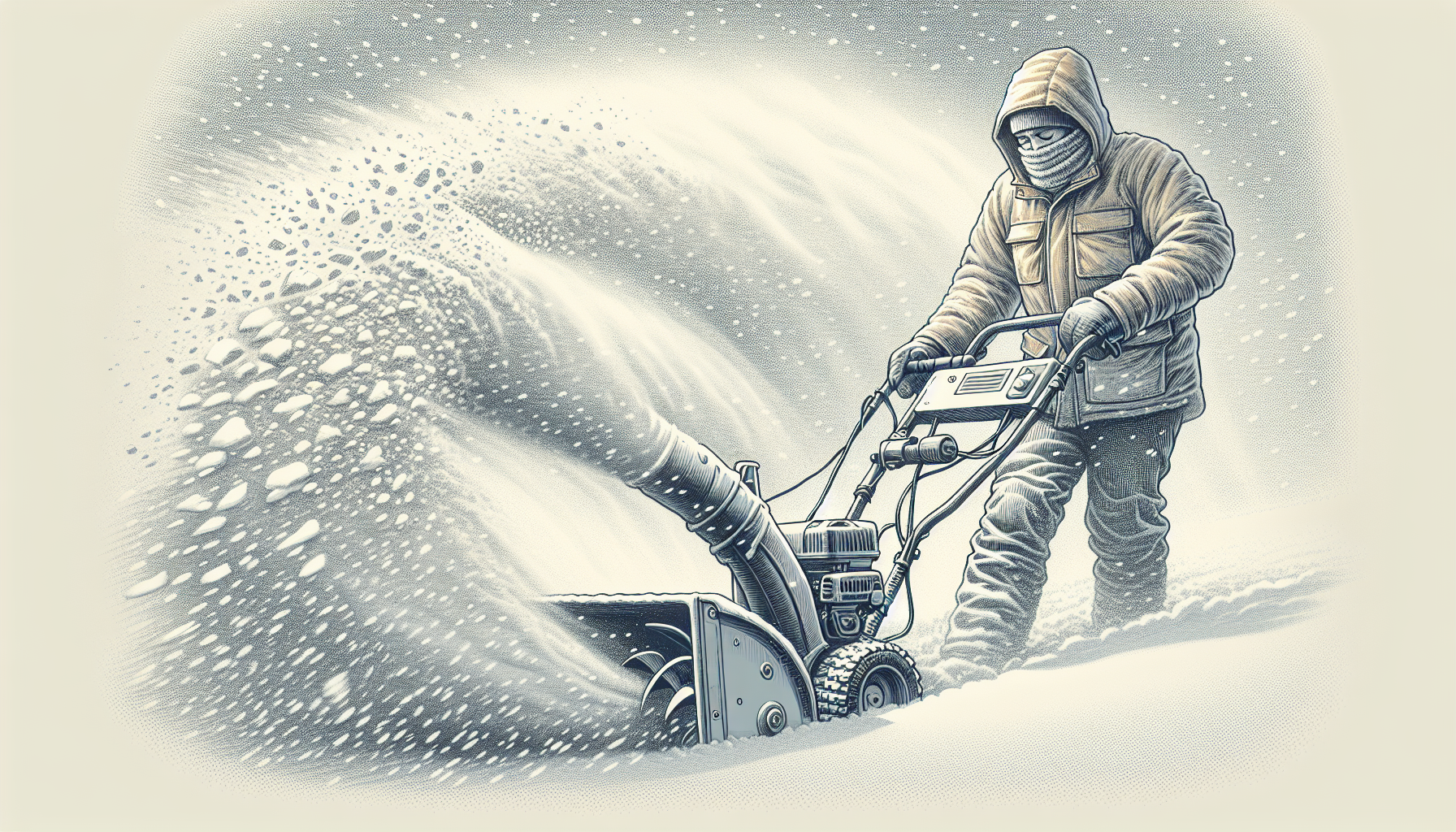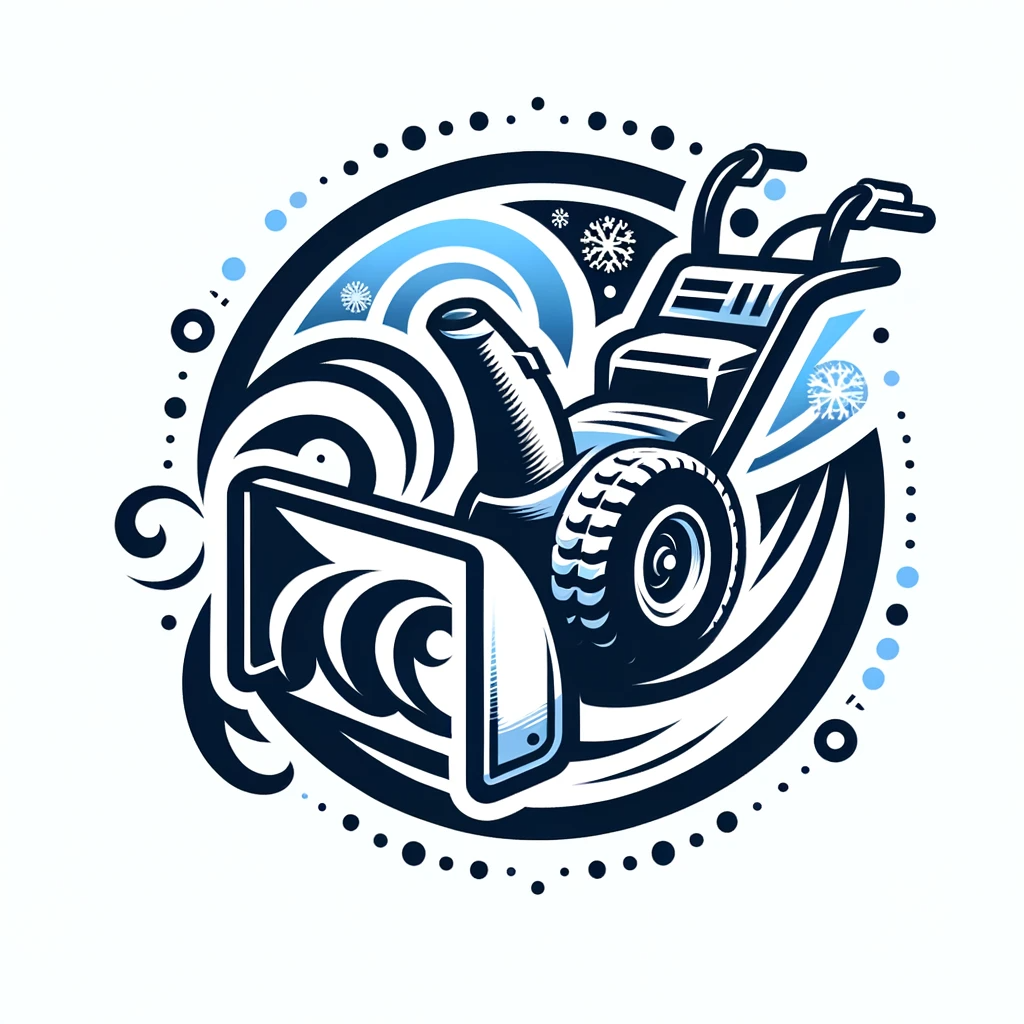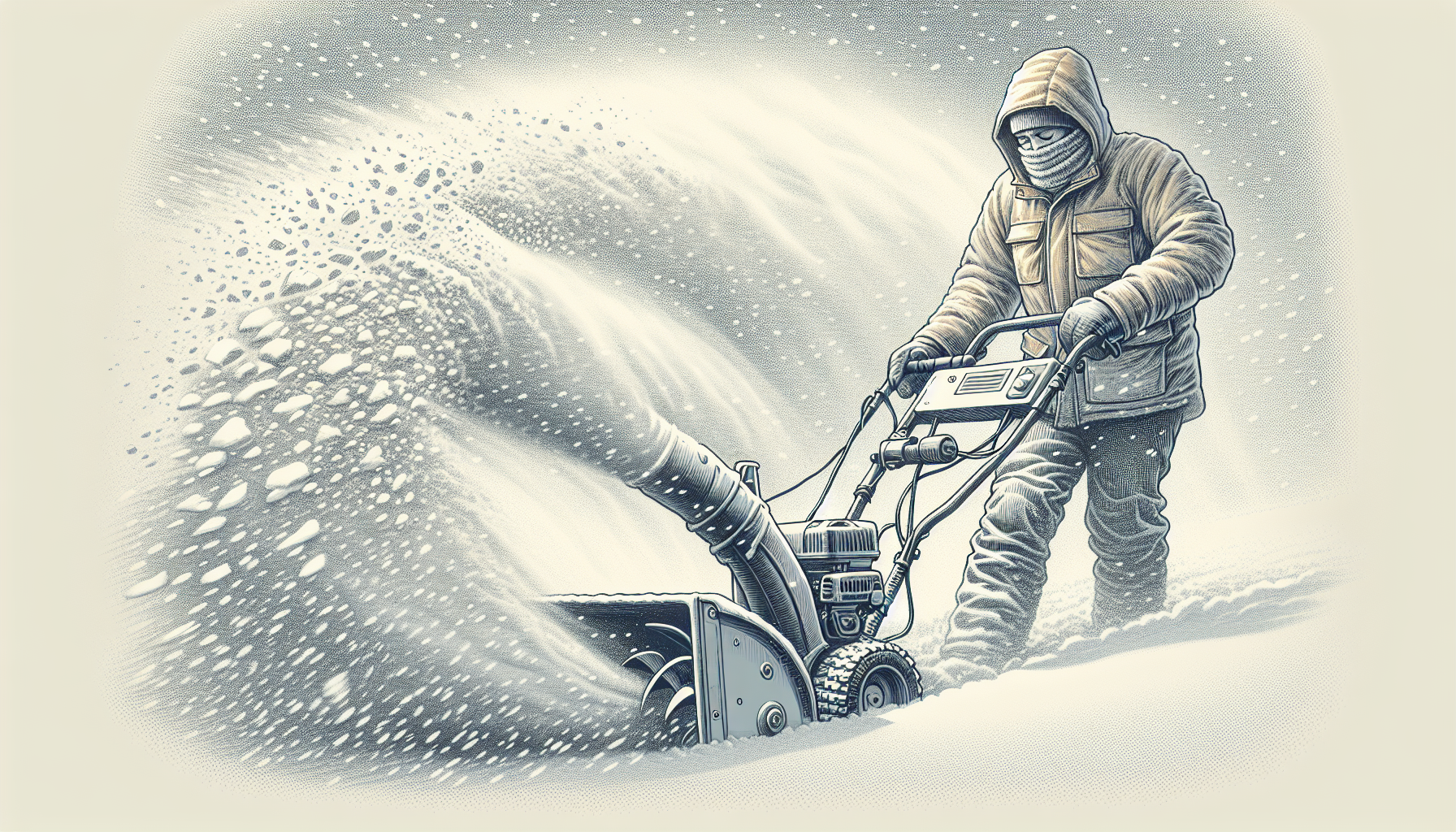Imagine waking up to find your driveway covered in a thick blanket of heavy snow. As you peer through your window, a sense of dread creeps in, wondering how on earth you’ll ever clear it all away. Before you start to panic, though, consider the possibility of using an electric snow blower. Wait, you may ask, can an electric snow blower handle heavy snow? In this article, we’ll explore the capabilities of electric snow blowers when faced with the daunting task of removing heavy snow, and discover if they are up to the challenge.

The Power of Electric Snow Blowers
When winter arrives and the snow starts piling up, it’s time to think about investing in a snow blower. Gone are the days of back-breaking shoveling, as snow blowers provide a convenient and efficient way to clear your pathways and driveways. Electric snow blowers, in particular, have gained popularity in recent years due to their numerous advantages. However, it’s important to consider both the advantages and disadvantages before making a decision.
Advantages of Electric Snow Blowers
Electric snow blowers offer several compelling advantages that make them an attractive option for homeowners. One of the key advantages is their environmental friendliness. Unlike gas-powered snow blowers, electric models produce zero emissions, making them a greener choice for those conscious of their carbon footprint.
In addition to being eco-friendly, electric snow blowers are also quieter than their gas counterparts. This means you can clear your snow early in the morning or late at night without disturbing your neighbors or waking up your family.
Electric snow blowers are generally lighter and more compact than gas-powered models, making them easier to maneuver and store. They are also typically easier to start, as they require a simple push of a button rather than pulling on a cord repeatedly.
Disadvantages of Electric Snow Blowers
Despite their many advantages, electric snow blowers also have a few limitations that should be considered. The most significant drawback is their reliance on electricity, meaning they need to be plugged into an outlet or powered by a battery. This can limit the range and mobility of the snow blower, especially in larger areas without easy access to power sources.
Electric snow blowers also tend to have less clearing power compared to their gas counterparts. They might struggle with heavy, wet snow or deeper accumulations, requiring more time and effort to clear the same area.
Factors to Consider
Before purchasing an electric snow blower, it’s important to be aware of various factors that can impact its performance. Understanding these factors will help you make an informed decision and choose a snow blower that suits your specific needs.
Snow Blower Power
The power of an electric snow blower is measured in amps. Higher amp ratings generally indicate greater clearing power. It’s important to choose a snow blower with sufficient power to tackle the snow conditions you typically experience.
Clearing Depth
Snow blowers have a maximum clearing depth, which refers to the height of snow they can effectively clear at a time. Consider the average snowfall in your area and choose a snow blower with a clearing depth that matches your needs.
Width of Clearing Path
The width of the clearing path determines how much snow can be cleared in a single pass. A wider clearing path can help save time and effort, especially for larger areas.
Intake Height
Intake height refers to how deep the snow blower can scoop up snow. Take into account the average depth of snowfall in your area to ensure that the snow blower can effectively handle it.
Terrain and Surface
Consider the type of terrain and surface you’ll be using the snow blower on. Some models are better suited for flat surfaces, while others are designed for uneven terrain or gravel pathways.
Moisture Content of the Snow
Electric snow blowers can struggle with wet, heavy snow due to their lesser power compared to gas models. If you frequently encounter heavy snowfall, it’s important to choose a snow blower that can handle wet snow effectively.
Snow Density
The density of the snow, which refers to its weight per unit volume, can impact the performance of a snow blower. Light, fluffy snow is easier to clear compared to densely packed snow.
Snow Accumulation
Consider the average amount of snow that accumulates in your area. If you experience heavy snowfall or regular snowstorms, a snow blower with higher clearing capacity and power might be more suitable.
Steepness of the Driveway or Pathway
If you have a steep driveway or pathway, it’s crucial to choose a snow blower capable of handling such slopes. Some models have features like adjustable skid shoes and differential wheel drive, which provide better traction and maneuverability on inclines.
Temperature
Cold temperatures can affect the performance of electric snow blowers, especially those powered by batteries. Consider the temperature range in which the snow blower can effectively operate to ensure it functions optimally in your climate.
Performance in Heavy Snow
One of the primary concerns when considering an electric snow blower is its performance in heavy snow conditions. While gas-powered snow blowers have traditionally been preferred for heavy-duty snow clearing, electric models have made significant advancements in recent years.
Electric vs. Gas Snow Blowers
Gas-powered snow blowers are known for their high clearing capacity and ability to handle heavy, wet snow. However, electric snow blowers are catching up in terms of performance, especially for residential use. They offer comparable clearing power and can effectively handle most snow conditions.
Clearing Capacity of Electric Snow Blowers
The clearing capacity of an electric snow blower refers to the amount of snow it can clear in a given timeframe. While gas snow blowers generally have higher clearing capacities, electric models with larger intake heights, wider clearing paths, and more powerful motors can handle heavy snow accumulation reasonably well.
Auger Design and Size
The auger, which is the rotating mechanism that scoops up and moves the snow, plays a vital role in the performance of a snow blower. Electric snow blowers with larger, durable augers and sturdy construction can handle heavy, wet snow more effectively.
Consideration of Wet, Heavy Snow
Wet, heavy snow can pose a challenge for electric snow blowers, but modern models are designed to handle it. Look for snow blowers with higher amp ratings and larger intake heights, as these features improve performance in such conditions.
Snow Chute Design
The design and adjustability of the snow chute can impact how efficiently a snow blower handles heavy snow. Look for models with adjustable chutes that can direct the snow where you want it, minimizing the strain on the blower and preventing clogging.
Battery-Powered Electric Snow Blowers
While corded electric snow blowers need to be plugged into a power source, battery-powered models offer greater mobility and flexibility. They allow you to clear snow in areas without nearby outlets, but keep in mind that battery life and power might be more limited, reducing their effectiveness in heavy snow conditions.
Best Practices for Efficient Snow Removal
To make the most of your electric snow blower and ensure efficient snow removal, consider following these best practices.
Preparation
Before the snow arrives, ensure your snow blower is in good working condition. Inspect it for any signs of damage, clean the auger, and check the oil and fuel levels if applicable. Additionally, clear any obstacles or debris from the area you’ll be clearing to prevent damage to the snow blower.
Maintenance and Care
Regular maintenance is essential to keep your electric snow blower running smoothly. Follow the manufacturer’s instructions for maintenance tasks such as oil changes, lubrication, and filter replacements. Store the snow blower in a clean, dry place when not in use to prevent rust and damage.
Timing of Snow Removal
Timing can significantly impact the effectiveness of snow removal. Try to clear the snow as soon as possible after it falls, as freshly fallen snow is easier to remove compared to snow that has been compacted or has started to melt and refreeze.
Layer by Layer Approach
When clearing deep or heavy snow, it’s best to take a layer by layer approach. Remove small amounts of snow at a time, gradually working your way through the snowdrifts. This approach prevents overloading the snow blower and ensures thorough clearing.
Clearing Technique
When operating the snow blower, use smooth and steady motions. Avoid forcefully pushing or jerking the machine, as this can strain the motor and auger. Let the snow blower do the work, guiding it along the path you want to clear.
Avoiding Overload
While electric snow blowers are designed to handle a range of snow conditions, it’s important not to overload them. Be mindful of the snow blower’s limits and its recommended clearing capacity. Pushing it beyond its capabilities can lead to reduced performance, clogging, and potential damage.
Dealing with Stubborn Snow
If you encounter stubborn, hard-packed snow or icy patches, consider using a snow shovel or ice chipper to break it up before using the snow blower. This will make the clearing process easier and prevent unnecessary strain on the machine.
Suitability for Different Situations
Electric snow blowers come in various sizes and power levels, making them suitable for a range of situations. Consider the following factors to determine the most suitable electric snow blower for your specific needs.
Residential Use
For most homeowners, an electric snow blower is an excellent choice for residential use. They are lightweight, easy to handle, and provide sufficient clearing power for typical snow conditions. Consider the size of your driveway and the average snowfall in your area to choose the appropriate model.
Consumer vs. Professional Electric Snow Blowers
Consumer-grade electric snow blowers are designed for residential use and are typically more affordable. Professional-grade electric snow blowers, on the other hand, are built for heavy-duty use and can handle larger areas and more frequent snowfall. Evaluate your specific needs and budget to determine which category is most suitable for you.
Sidewalks and Small Driveways
Electric snow blowers are well-suited for clearing sidewalks and small driveways. Their maneuverability and compact size make them ideal for navigating tight spaces and removing snow from smaller areas efficiently.
Large Driveways and Commercial Applications
While electric snow blowers excel in residential settings, they might not be as suitable for large driveways or commercial applications. If you have an expansive driveway or need to clear snow from a commercial property, a gas-powered snow blower with higher clearing capacity might be a better choice.
Climate Considerations
Consider the climate in your area when choosing an electric snow blower. If you live in an area with heavy snowfall or extreme weather conditions, it’s important to invest in a snow blower with sufficient power and durability to handle those conditions effectively.
Snowfall Frequency and Volume
The frequency and volume of snowfall in your area can also impact the suitability of an electric snow blower. If you frequently experience heavy snowfall or regular snowstorms, it’s advisable to choose a snow blower with higher clearing capacity and power.
The Future of Electric Snow Blowers
As technology continues to advance, electric snow blowers are poised for further improvements and innovation. The future holds exciting possibilities for these machines.
Advancements in Battery Technology
The development of more powerful and longer-lasting batteries will significantly enhance the performance and mobility of electric snow blowers. As battery technology continues to improve, we can expect snow blowers with greater clearing capacity and runtime.
Increased Power and Performance
Manufacturers are constantly working to enhance the power and performance of electric snow blowers. Through advancements in motor technology and auger design, electric models are becoming more capable of handling heavy snow conditions.
Environmental Considerations
With growing concerns about environmental sustainability, electric snow blowers offer a greener alternative to their gas counterparts. As more people prioritize eco-friendly options, manufacturers will likely continue to refine electric snow blowers to maximize their efficiency and reduce their environmental impact.
Noise Levels
Reducing noise levels is another area where electric snow blowers are making progress. Manufacturers are focusing on developing quieter models, making them more suitable for use in noise-sensitive areas or during early morning and late-night snow clearing.
Improved Ergonomics
Ergonomics play a crucial role in the usability and comfort of snow blowers. Manufacturers are incorporating ergonomic features such as adjustable handles and improved weight distribution to reduce strain and fatigue on the user.
Smart Features and Automation
The integration of smart features and automation is an exciting prospect for electric snow blowers. Imagine a snow blower that can detect the depth of snow, adjust clearing settings accordingly, and even be controlled remotely via a smartphone app. As technology continues to advance, these features may become a reality in the near future.
In conclusion, electric snow blowers offer a range of advantages that make them a compelling choice for homeowners. While they may have some limitations, modern electric models are capable of handling heavy snow conditions with increasing efficiency. By considering the factors that impact their performance, following best practices for snow removal, and choosing the right model for your specific needs, you can ensure a smooth and hassle-free snow clearing experience. The future looks bright for electric snow blowers, with advancements in battery technology, increased power, and improved environmental considerations paving the way for even more efficient and sophisticated machines. Whether it’s for residential use or commercial applications, electric snow blowers are proving that they have the power to tackle winter’s toughest challenges.


